Perhaps the most frustrating aspect of the Fantastic Beasts franchise is its stubborn refusal to capture the magic of the earlier Harry Potter series.
The Harry Potter film franchise was a minor cinematic miracle. The films follow the central cast across their entire school life, with eight films from four directors released over the decade between 2001 and 2011. In a very real sense, the films invited the audience to watch Harry Potter (Daniel Radcliffe), Ron Weasley (Rupert Grint), and Hermione Granger (Emma Watson) grow up in front of their eyes, a fantastical riff on the central premise of Richard Linklater’s Boyhood.
The eight films evolve as they go, with four composers, six cinematographers, and five editors each allowing for shifts in style and tone from one adventure to the next. The films begin as relatively lighthearted family adventures and grow into more angsty apocalyptic young adult spectacle. Ralph Fiennes doesn’t appear as the series’s antagonist Lord Voldemort until the climax of Harry Potter and the Goblet of Fire, the fourth film in the series.
The effect is cumulative. Director David Yates’ darker approach to the tail end of the franchise only works because it exists in contrast to the innocence that Chris Columbus brought to the first two films. While critics of those early films argued they would “drag on” and were “more concerned than they should be about leaving something out,” Columbus’ films allow the audience to get a sense of both the characters and the world before everything goes to hell around the series’s midpoint.
Since the end of the Harry Potter film franchise, author J.K. Rowling has explored various avenues of expanding the franchise. There have been theme park expansions, with Wizarding Worlds opening at Universal Studios Islands of Adventure in June 2010 and at Universal Studios Hollywood in April 2016. There have been stage plays, with Harry Potter and the Cursed Child launching at the Palace Theatre in July 2016.
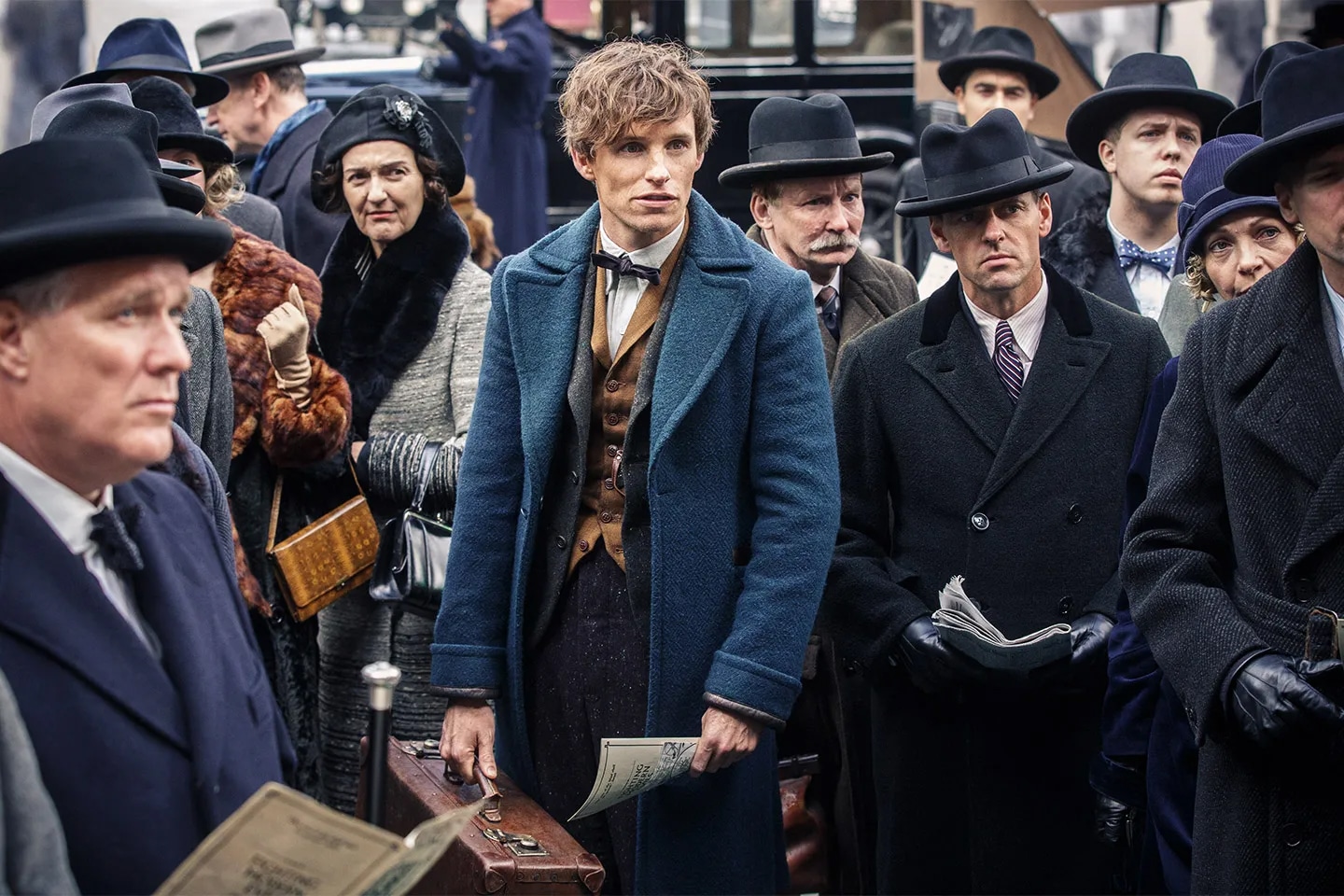
The Fantastic Beasts franchise is a major part of this expansion. The first film in the series, Fantastic Beasts and Where to Find Them, was adapted by Rowling from an in-universe textbook that she had written in the persona of Newt Scamander (Eddie Redmayne). As the title implies, the book was a guide to the larger world of Harry Potter, featuring a myriad of imaginary and magical creatures. The book was praised by Entertainment Weekly for its “richly detailed history lessons and witty debate.”
One of the more frustrating aspects of the cinematic adaptation of Fantastic Beasts and Where to Find Them is that it largely eschews any of the sense of whimsy or magic of the early Harry Potter stories, instead jumping straight into the high-stakes apocalyptic spectacle. This is disappointing because there are a lot of potentially interesting elements at play. Fantastic Beasts and Where to Find Them theoretically takes audiences to corners of the Wizarding World as yet unexplored.
Most obviously, the films are period pieces set in the interwar period. This is a compelling aesthetic to layer on top of the franchise, even if the Hogwarts setting of the earlier Harry Potter films always had a certain timeless quality. More to the point, both Fantastic Beasts films take place outside of the United Kingdom, with Newt visiting New York in the first film and Paris in the second film. There is a sense in which these movies are building a literal wizarding world.
More than that, the central premise is intriguingly surreal and suitably distinct from the logic of the Harry Potter films. The Harry Potter films were about teenagers going to school, while the Fantastic Beasts films focus on a “magizoologist.” Theoretically, Newt has a radically different perspective on the Wizarding World than any of the characters in the Harry Potter movies, with a career that takes him on very different adventures to very different parts of the world.
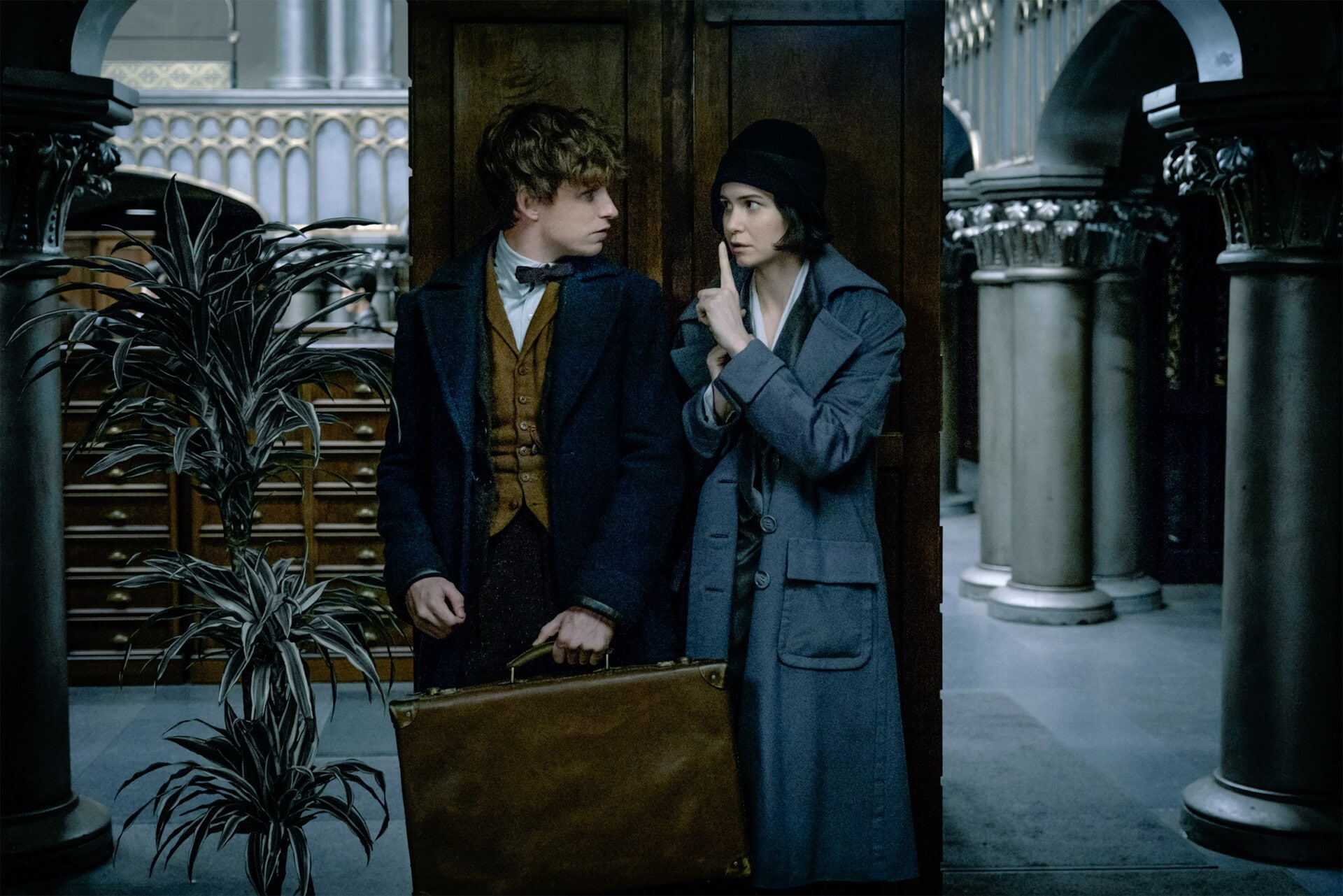
There is also another distinct sensibility at work here. There is a sense of Rowling and Yates riffing on Doctor Who for an American audience. This isn’t a surprise. After wrapping his work on the Harry Potter franchise, David Yates boasted that his next project would be a Doctor Who movie, something that then-showrunner Steven Moffat dismissed. Moffat’s predecessor, Russell T. Davies, had asked Rowling to write for the show and even considered casting her as herself for a cameo.
With his old-fashioned dress, his absent-minded manner, and his distinctive bowtie, Newt Scamander recalls the Eleventh Doctor (Matt Smith), who headlined Doctor Who between January 2010 and December 2013. Rumors circulated that the production team wanted to cast Smith in the role, leading to a bizarre situation where Academy Award-winning actor Eddie Redmayne has spent almost half a decade doing a Matt Smith impression.
The most interesting aspects of Fantastic Beasts and Where to Find Them feel inspired by Doctor Who, particularly an extended trip inside the suitcase that Newt carries with him. Like the TARDIS, the suitcase is bigger on the inside. There’s something whimsical in that. “What did you do today, Jacob?” asks baker Jacob Kowalski (Dan Fogler) of himself. “I was inside a suitcase.” The suitcase contains countless enclosures, each housing some manner of magical creature.
It is a short sequence, but it is magical in a way that the rest of the franchise never allows itself to be. Indeed, it is tempting to read the sequence as a metaphor for the art of movie-making, something that the film reinforces with the matte painting and fabric backdrops that close off each individual ecosphere. Newt’s suitcase is similar to a green-screen studio, a space that can be anything that it needs to be.
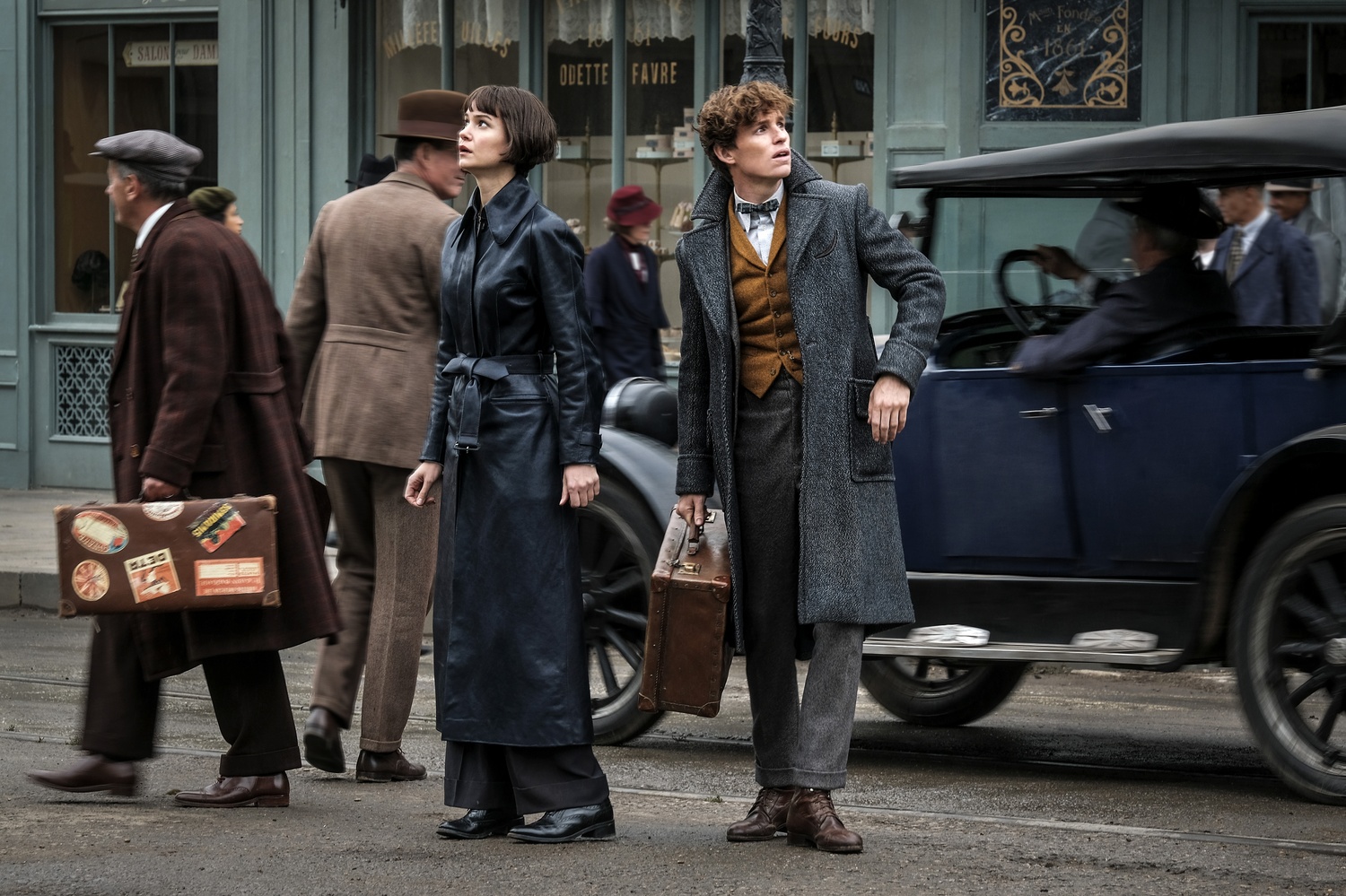
Unfortunately, Fantastic Beasts and Where to Find Them has little room for that sort of magic or exploration. Yates directs the film in much the same way that he directed the later Harry Potter films, creating a desaturated world of stark contrasts. It’s possible to read this aesthetic choice as something of a subtle nod to German Expressionism, particularly given that the film unfolds in the shadow of a looming war against fascism, but it is all suffocatingly self-serious and earnest.
The eponymous creatures are treated as a sideshow, rather than the main event. When a few escape from Newt’s suitcase, Percival Graves (Colin Farrell) uses the ensuing chaos to cover up a much more sinister plot. “Graves always insisted the disturbances were caused by a beast,” explains Tina Goldstein (Katherine Waterston). “We need to catch all your creatures so he can’t keep using them as a scapegoat.” That’s it. The fantastical beasts are a subplot in their own movie.
The stakes in Fantastic Beasts escalate dramatically. The movie’s climax features a massive attack on New York City, a sequence that would feel more at home in a superhero blockbuster than a Harry Potter movie. There is a sense that Fantastic Beasts and Where to Find Them knows this level of carnage is unsustainable; things get so bad that the only way for the wizard population of New York to continue to function is to wipe the memory of every non-magical human being in the city.
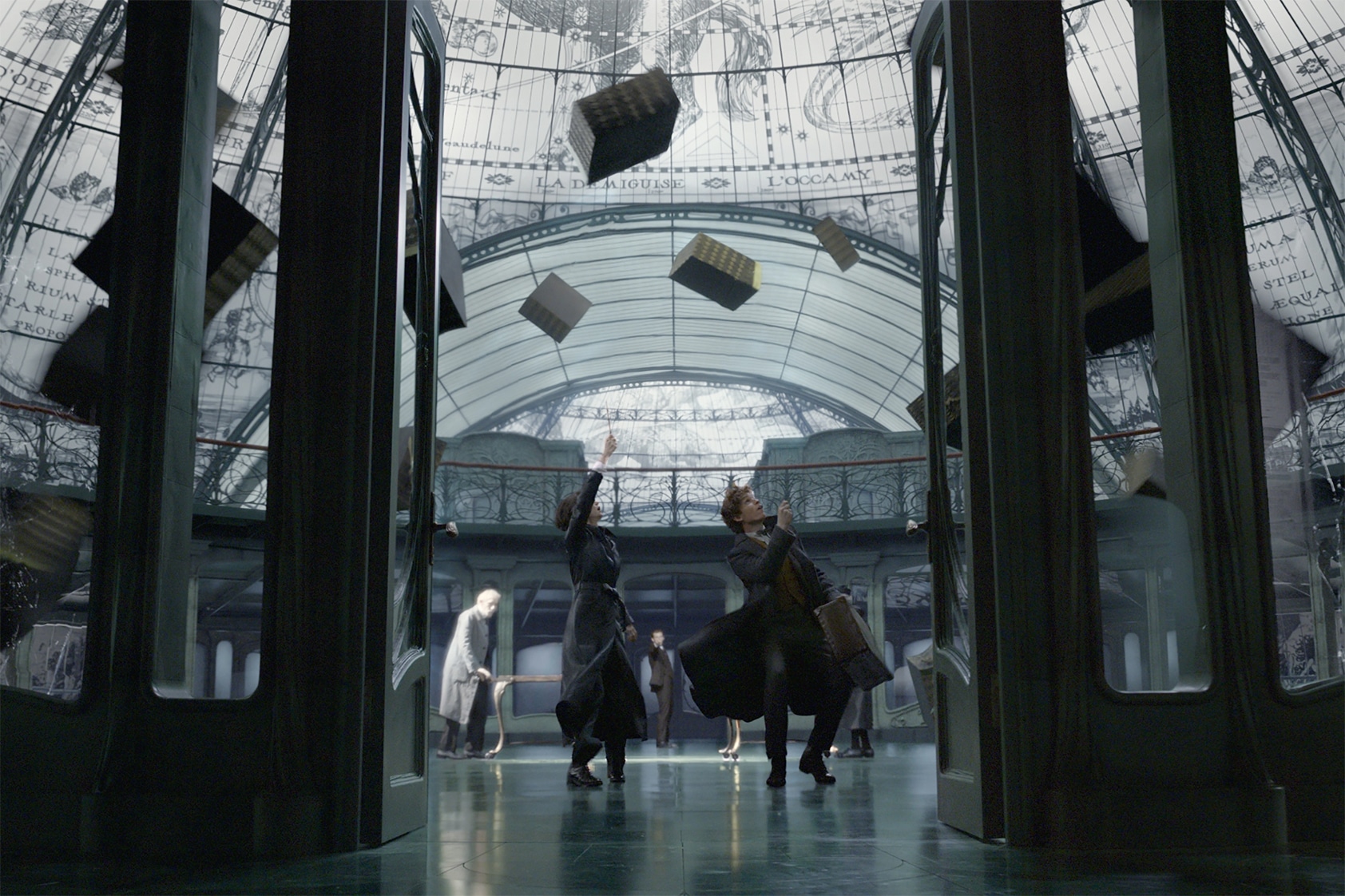
It doesn’t help that Fantastic Beasts and Where to Find Them is so dedicated to its internal lore that the movie continues for 20 minutes after this climax. It is obvious that Yates and Rowling are building a franchise. After the movie’s climax, the villainous Graves is revealed to be Grindelwald (Johnny Depp) in disguise. Newt carries around a picture of Leta Lestrange, played by Zoë Kravitz. This is all lore-building and sequel-prepping that has nothing to do with the film itself.
The Fantastic Beasts movies exist largely as holding silos for exposition about the mythology of Harry Potter. The sequel, The Crimes of Grindelwald, stops for 10 minutes so Yusuf Kama (William Nadylam) can explain the backstory of Credence Barebone (Ezra Miller), only for the movie to immediately follow that with another 10-minute sequence in which Leta Lestrange then outlines Credence’s real backstory. It’s not visually interesting or narratively compelling, but the film commits to it.
It is often hard to figure out exactly what Fantastic Beasts is supposed to be, beyond an expansion of the existing Harry Potter brand that has been stubbornly willed into existence against all common sense. While Fantastic Beasts and Where to Find Them released to solid reviews and a promising box office, The Crimes of Grindelwald received a decidedly colder critical and commercial reception. Nevertheless, Warner Bros. seems committed to making Fantastic Beasts an epic five-film saga.
At its best, the Harry Potter franchise was movie magic in the purest sense. So far, Fantastic Beasts has failed to recapture any of that magic in a meaningful way.

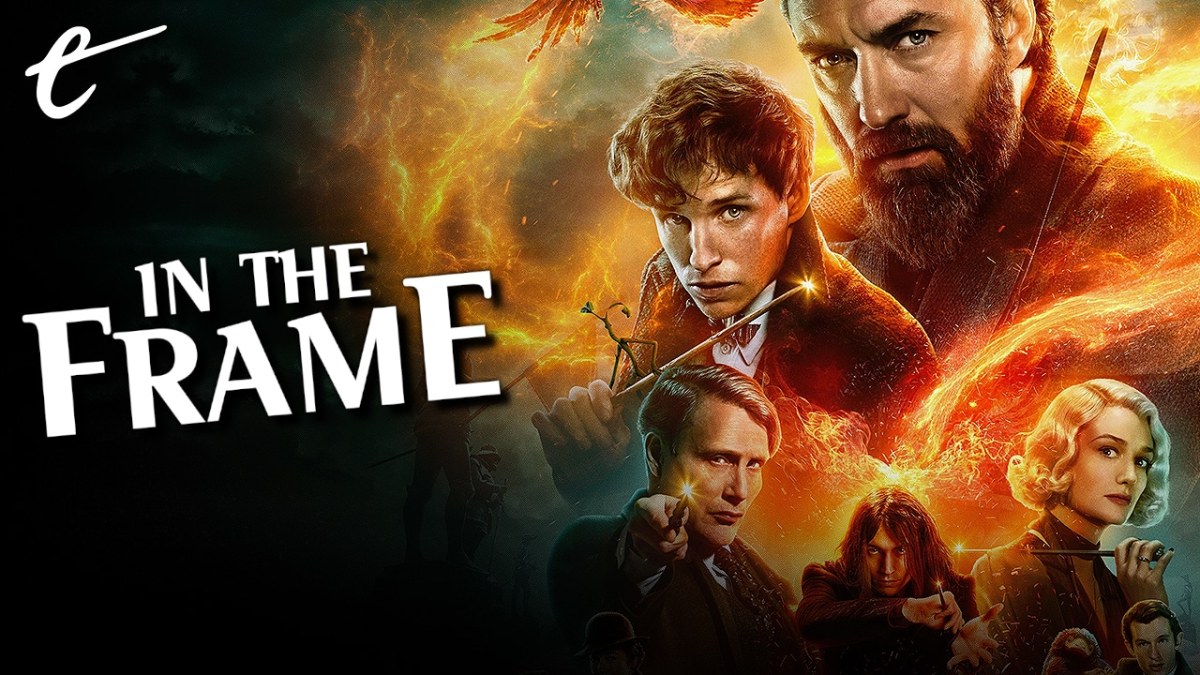




Published: Apr 1, 2022 11:00 am